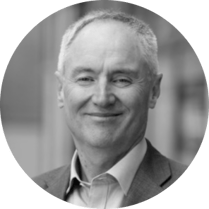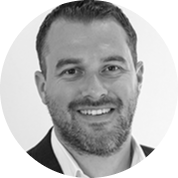Workplace commentator Chris Moriarty, recently hosted a panel discussion for OpenSensors - with workplace experts from Savills, PTHR and the BBC - to examine the the global rise of hybrid working and how this is shaping the future of work. Here's a summary from the event.

“What we have to accept is that we’re all witnessing some existential shocks taking place to our system of, not only the workplace, but living and learning generally.”
This was the hard-hitting opening response from renowned workplace thinker, and author of
Where’s my Office, Chris Kane. His concern being that during this period of uncertainty we’re in danger of
“using 20th century thinking to solve 21st century problems.”
The rise of hybrid working
Our webinar brought together Chris Kane, Dan Gardner who is a workplace designer at KKS Savills and Megan Phelps, the Head of Organisational Development & Business Transformation at PTHR.
Having expertise from the world of Corporate Real Estate, Workplace Design and HR was a conscious move given that the next chapter of work requires a holistic approach between those responsible for spaces and for engaging people.
What was clear from the fire side panel is that collaboration alone is not enough between HR, Workplace and Corporate Real Estate. These organisational functions are going to have to adapt their thinking and approach as to not make the same mistakes they did before 2020; for whatever type of 'workplace' emerge post-pandemic.
Why culture is pivotal
One of the most common concerns cited when looking at letting a workforce decide where it wants to work, is culture. If the countless reports are to be believed, then it looks as though the workforce is likely to spend as much time away from the office as they are in it; which some organisations believe will degrade that collective sense of belonging.
Whilst accepting that for some organisations, the spaces we occupy can be a key lever in that regard, Megan Phelps suggest that organisations need to work harder to create “a sense of community and social bond”, reiterating this can be done regardless of where people are.
She listed methods of autonomous systems to create a connection regardless of where people are situated, such as:
- Free flowing communication
- Decentralised authority
In doing so, organisations can still get the best from their people and their people can get the most from a more flexible approach to work.
These are not new ideas, although the pandemic has likely raised their prominence. What it highlights is that this is really a cultural challenge, rather than a space led challenge. That isn’t to diminish the role of space but we have to recognise that the nature of work is a precursor to space solutions. Up until now we’ve been obsessed with space as Kane pointed out.
The office experience
Ultimately some of these trends around work are driving new approaches from organisations and the spaces they need. However, increasingly, organisations are keen to ensure that the experience is also an amazing one.
Now, that might be in part, a way for organisations (concerned about a dispersed workforce) coaxing people back into the corporate workspace, but it is starting to influence briefs from organisations who are keen to do more.
Increasing office space
In fact, in a post-pandemic landscape, with reduced footfall, it would be too easy for organisations to rub their hands together at the idea of cost saving by reducing their office space. However, Dan Gardener says that more and more organisations are bucking that trend.
“There are firms that aren’t downsizing whatsoever. They’re actually taking more office space and making a massive thing about it. So, having much greater social spaces - so when people do come together, they come together in a well designed, good space.”
Rethinking your workplace strategy approach
Could now be the time for organisations to think about their workplace strategy in terms of employee experience, which can be anywhere and possibly at any time?
If organisations start thinking like this, will the market adapt? Is change coming and are we ready for it?
Kane suggested “It’s happening, it’s not coming….the long standing models are going to have to change, and change dramatically.”
It feels like a number of the challenges we are facing are going to not only need a fresh approach, but fresh thinking. In the amazing
Pig Wrestling by Pete Lindsay and Mark Bawden, they talk about how we frame a problem being, at times, a bigger challenge than the problem itself. If we frame something incorrectly then our solution will be misguided.
Final thoughts
Perhaps that’s a lesson here for us in the ‘space’ family. We need to frame this as a wider organisational challenge as well as a space issue. How we use space will be part of the solution for sure, but this is a chance to reinvent how we work before we start reinventing where we work.
It will need input from a number of sides, like our webinar panel, each with their own expertise and experiences.
We need to put people at the heart of the challenge, and their experience must remain paramount. Not in a ‘conceding power’ way but in a sharing of it.
Happy people means good work. Good work means better business outcomes. It makes sense. By clinging to that mindset, that objective, it doesn’t matter what existential shock waves come our way, we’ll be ready for it.
Adapting our approach, adapting our position, adapting our solutions. All in the service of creating amazing workplace experiences.
Hear from the panelists directly
Want to learn more?
Whether you need help with workplace analytics, consultation on your strategy or guidance on your workplace plans, we're here to help. Call us on +44 (0)20 3868 4376 or




